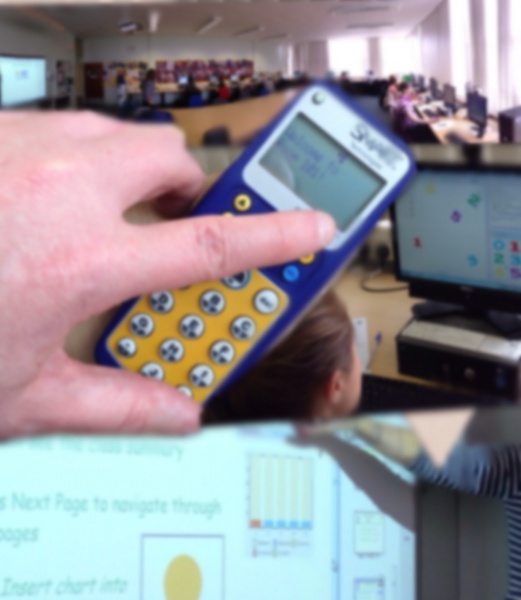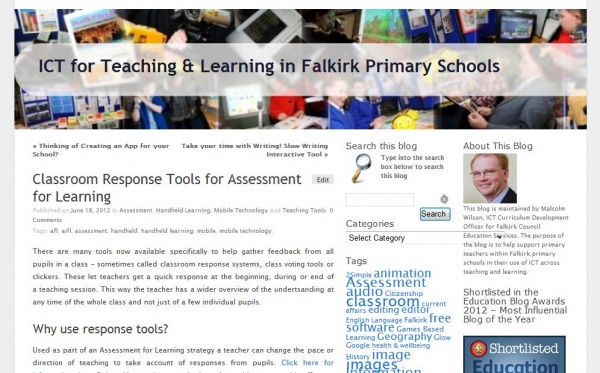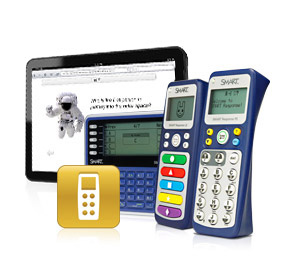Gillian Campbell, Curriculum Support Officer, oversaw moderation funding projects during the 2013-14 session including one led by Stacey Collier-West, DHT at St Margaret’s Primary School and Nursery Class.
After consultation with the Curriculum Support Team it was decided that, at St Margaret’s Primary School and Nursery Class, Bloom’s Higher Order Questioning should be introduced across the school.
Three teachers were selected to observe good practice in another school and to then come back to St Margaret’s and demonstrate the Bloom’s pedagogy to three of their teaching colleagues.
Before travelling to the local school for observations the teachers involved completed a ‘Record of Collegiate Visit’. On this they detailed ‘Pre-visit’ notes where they outlined what the hoped to get out of the visit. They then used this same form to note points of interest, observations and notes made during the session and action points they feel will be addressed as a result of what they have seen.
After the process each member of teaching staff involved completed a self-evaluation sheet (based on Guskey’s framework) which delved into their personal reactions, personal learning, thoughts on organisation, support and change as well as their feelings about their new knowledge and skills and most importantly the impact on pupil learning.
Feedback from the three teachers involved in the initial stages of the project were positive in their evaluation of the work. One commented:
“I felt very supported by all members of staff and although I was a little apprehensive initially about the unknown, staff reassured me and the experience was highly enjoyable… Management was very supportive and asked at different points how it was going and if it was useful”
Constructive feedback did show that the turnaround between observing another school in the morning and then teaching in their own school in the afternoon was very tight and added pressure for the teachers involved.
The school have taken steps to monitor impact on pupil learning since running this project and will carefully study CEM data and other information including quality assurance information (observations, pupil voice groups and jotter monitoring).
Sarah Myles, classroom practitioner described her thoughts on the project:
“It was very important for me to see the questioning taking place as it made it very clear and manageable whereas before, on paper, I was not sure how to deliver this to younger pupils. The teacher took time to explain where the school had gone on its journey- starting with the fans then adapting them for younger pupils.”
Tag: Assessment
Assessment Guidance 2013- 2016 goes live!
Assessment guidance 2013 -2016 Carol Paton Curriculum Support Officer in the Falkirk Council Education Services Curriculum Support Team has produced guidance to support Early Years Practitioners, Teachers and Headteachers as they develop approaches to assessment in the broad,general education. The guidance has been produced in collaboration with staff from a range of establishments. The guidance contains links to a range of support materials for staff.
Smart Response tools to support Assessment for Learning
 Malcolm Wilson, ICT Curriculum Development Officer in Falkirk Council Education Services Curriculum Support team, organised and supported a hands-on continuing professional development session presented by Anne Forrest of Steljes for staff from a variety of primary and secondary schools in Falkirk on the use of Smart Response tools to support Assessment for Learning.
Malcolm Wilson, ICT Curriculum Development Officer in Falkirk Council Education Services Curriculum Support team, organised and supported a hands-on continuing professional development session presented by Anne Forrest of Steljes for staff from a variety of primary and secondary schools in Falkirk on the use of Smart Response tools to support Assessment for Learning.
Anne Forrest took participants through the use of Smart Response handsets to respond to a series of questions, then showed how that information could be used by the teacher to support learning and teaching in the classroom. Then she guided everyone through the steps to set up their own teacher profile and their class lists, so that when pupils use the handsets the responses could be analysed by the teacher to provide support as required. Anne Forrest made her resources available to all participants, which can be accessed by clicking here (note that a Glow username and password is required to access these resources).
Smart Response tools work in tandem with Smart Board interactive whiteboard software and provide a means for teachers to get feedback from all of their pupils in their class. This can be before a class starts work on a new topic in any curricular area in order to guage the prior learning of pupils, or they can be used regularly during a teaching session to let the teacher keep ensuring pupils have understood each step before proceeding to the next step (or quickly pick up where different teaching strategies might be required), or as an assessment at the end of a teaching session.
Sometimes called classroom response systems, class voting tools or clickers, these Smart Response tools are just one type of the many tools now available specifically to help gather feedback from all pupils in a class. These let teachers get a quick response at the beginning, during or end of a teaching session. This way the teacher has a wider overview of the undertsanding at any time of the whole class and not just of a few individual pupils. Used as part of an Assessment for Learning strategy a teacher can change the pace or direction of teaching to take account of responses from pupils.
 There are many free pre-created templates and question sets ready to be downloaded and adapted by teachers to suit the needs of their own pupils. Click here for the online Smart Exchange site where these can be downloaded.
There are many free pre-created templates and question sets ready to be downloaded and adapted by teachers to suit the needs of their own pupils. Click here for the online Smart Exchange site where these can be downloaded.
Click here for more information about classroom response systems.
Responses from participants included:
“Very useful session – took us through the set up step by step which was fab – learned lots – thank you! What an amazing tool.” KD – Stenhousemuir PS
“An excellent course – very informative and great, easy to follow instructions. I can’t wait to try them out. Thank you.” LD – Langlees PS
“A super session and great explanation on how to use Smart response.” JM – Bantaskin PS
Supporting Assessment for Learning with Smart Response tools
Malcolm Wilson, ICT Curriculum Development Officer in Falkirk Council Education Services Curriculum Support team, provided a hands-on continuing professional development session for staff at St Bernadette’s Primary School on the use of Smart Response tools to support Assessment for Learning.
 Smart Response tools work in tandem with Smart Board interactive whiteboard software and provide a means for teachers to get feedback from all of their pupils in their class. This can be before a class starts work on a new topic in any curricular area in order to guage the prior learning of pupils, or they can be used regularly during a teaching session to let the teacher keep ensuring pupils have understood each step before proceeding to the next step (or quickly pick up where different teaching strategies might be required), or as an assessment at the end of a teaching session.
Smart Response tools work in tandem with Smart Board interactive whiteboard software and provide a means for teachers to get feedback from all of their pupils in their class. This can be before a class starts work on a new topic in any curricular area in order to guage the prior learning of pupils, or they can be used regularly during a teaching session to let the teacher keep ensuring pupils have understood each step before proceeding to the next step (or quickly pick up where different teaching strategies might be required), or as an assessment at the end of a teaching session.
Sometimes called classroom response systems, class voting tools or clickers, these Smart Response tools are just one type of the many tools now available specifically to help gather feedback from all pupils in a class. These let teachers get a quick response at the beginning, during or end of a teaching session. This way the teacher has a wider overview of the undertsanding at any time of the whole class and not just of a few individual pupils. Used as part of an Assessment for Learning strategy a teacher can change the pace or direction of teaching to take account of responses from pupils.
 There are many free pre-created templates and question sets ready to be downloaded and adapted by teachers to suit the needs of their own pupils. Click here for the online Smart Exchange site where these can be downloaded.
There are many free pre-created templates and question sets ready to be downloaded and adapted by teachers to suit the needs of their own pupils. Click here for the online Smart Exchange site where these can be downloaded.
Click here for more information about classroom response systems.


